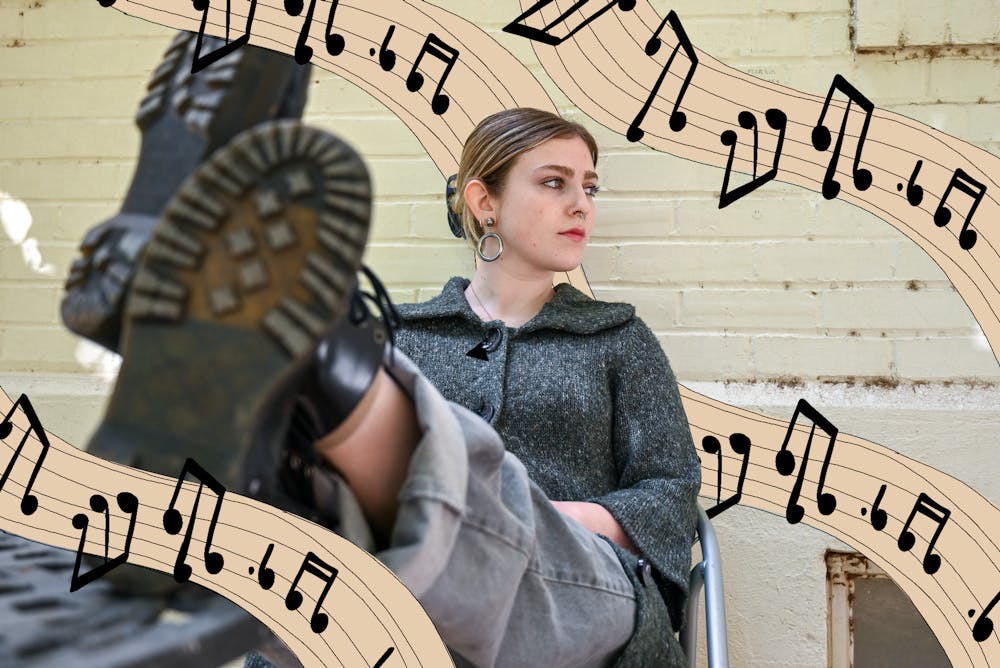As music becomes more accessible, new indie artists have started to adapt the qualities of whatever is popular at the moment to attain more engagement and clicks. But when indie artists start to manage their brand this way, the definition of the genre becomes more ambiguous, and maybe, synonymous with pop.
"More of the popular pop artists (have) started to take ideas of these niche indie artists and then implement it into their music,” said Efaz Arian, a sophomore studying computer science and a regular at ASU's Album Listening Club. "Because the definition of pop is popular, and indie is independent … when you mix those two, it really makes you think, 'What's actually indie? What's actually pop?'"
And because music — and the accompanying fashion, merch and paraphernalia — is so widespread, commitment to being a "cult follower" of a band has waned. Being a fan used to require dedication that went beyond pure interest — it was a way of life that influenced the structure of relationships, personal style and philosophy. Now, being a fan requires less effort because it's easier to sample.
"You walk around campus, and you're seeing kids that are dressing like it's 1995 and they're in a Midwest emo band or something like that," said Eric Bjorklund, an assistant teaching professor at The Sanford School who taught sociology of music. "But interestingly, they're not part of some deep subculture. Wearing those clothes doesn't necessarily signal that this is their life ... it's just a vibe, a temporary aesthetic that you wear because it looks cool."
READ MORE: Secret lives of Utah fit checks
Indie music wasn't always mainstream. In the 1970s, the birth of punk gave way to alternative rock, along with subgenres like noise rock and post-punk. By the end of the '80s, indie was born, setting the stage for a decade where rock had an explosion of new sounds and genres, along with a slew of new bands (think Pixies, Sonic Youth, and Dinosaur Jr.).
Indie crossed over to the mainstream in the mid-2000s with the influence of movies, the release of the iPhone and the post-punk revival. In the 2010s, social media began to take the stage. In 2025, we're finally able to see its effects on pop culture.
Thanks to social media, consumers no longer have to dig through boxes of vinyls or CDs to find an artist they're interested in, and we don't have to tune into the radio at a specific time to hear a specific genre of music or station.
READ MORE: Record collecting community creates vinyl revival
Social media has helped broaden the definition of indie into something more of an overall vibe than a genre. Indie has become synonymous with "cool" and "alternative," even if what's cool and alternative is actually the highest on the charts.
"I think being open-minded is part of being indie," said Sage Sakala, a junior studying fashion and the lead singer of One Trick Dog. "I think this whole idea of gatekeeping and just being pretentious or judgmental about music, in general, is really annoying, and that is definitely not something that an indie person would do."
The indie sound has been diluted to a general vibe that new artists are trying to pick up to feed their success on the algorithm, which is how pop music starts to come into the picture.
"Pop music is about commercial success," Bjorklund said. "It's about predictability, formula."
That's not to say that independent artists are dead. Social media has transformed the landscape of creating and consuming music, but local scenes continue to thrive. If nobody knows about the local indie scenes, it's proof they're alive and well.
READ MORE: As concert ticket prices skyrocket, local artists are reaping the rewards
Music is different now, but it is by no means dead; in fact, it might be doing better than ever. As indie drifts into pop territory, it might be better to surrender to the widespread enjoyment of it instead of trying to gatekeep what inevitably cannot be kept secret, especially in the age of the internet.
The definition of what's "popular" in the music world is constantly evolving as we are. And if that means that indie music is emerging from obscurity, we might as well appreciate the opportunity to enjoy it.
Edited by Andrew Dirst, Sophia Braccio and Alysa Horton.
Reach the reporter at ebmosier@asu.edu and follow @eleribmosier on X.
Like The State Press on Facebook and follow @statepress on X.
Eleri is a senior studying interdisciplinary studies, english and sociology. This is her third semester with The State Press. She has also worked in retail.




